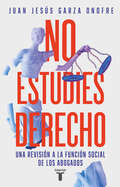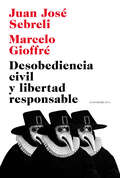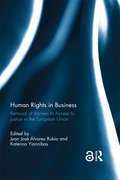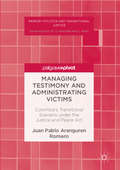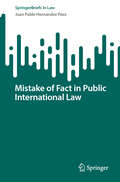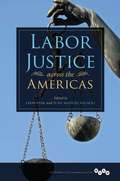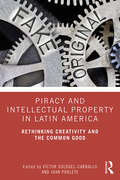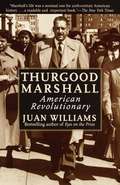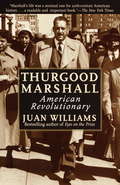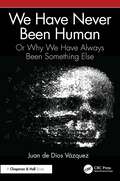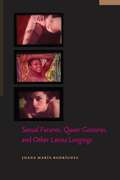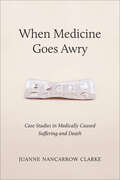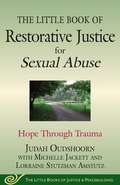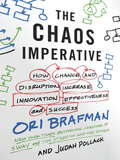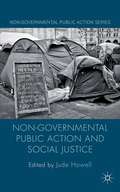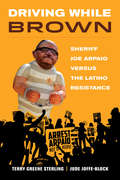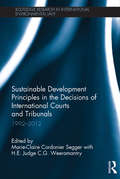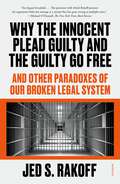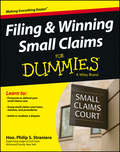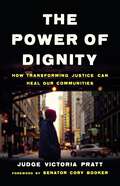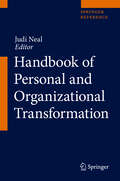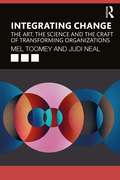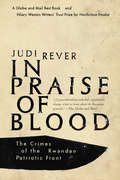- Table View
- List View
No estudies derecho
by Juan Jesús Garza OnofreUna invitación a no estudiar derecho el Derecho, para cambiar nuestra relación con las leyes que nos rigen y sus operadores. ¿Desde hace cuánto tiempo se dirá, a modo de chiste, que los abogados y los plátanos se parecen en que no hay uno derecho? ¿Por qué en México, a pesar de que se abre una nueva escuela de Derecho cada semana —¡hay más facultades de Derecho en Puebla que en todo Canadá!—, no vivimos en una cultura de la legalidad? ¿Por qué pareceque es necesario disfrazarse para ejercer la profesión o hablar en un idioma tan extraño que tiene su propio nombre: el abogañol? Algo anda mal con la formación y el papel que desempeñan los abogados en la sociedad. Quienes deberían fungir como garantes del Estado de Derechoe igualadores de los ciudadanos ante el sistema de justicia, muchas veces terminan como guardianes del statu quo y defensores de los intereses de unos cuantos. Por ello, la primera parte de este libro revisa con mirada crítica los principales vicios y obstáculos que afectan la labor de los abogados: desde el conservadurismo dentro del gremio hasta la dificultad para adaptarse a los cambios tecnológicos, pasando por el machismo y la uniformidad aplastante.Por supuesto, este libro no defiende la idea de un mundo sin abogados. De lo que se trata, nos dice Juan Jesús Garza Onofre, es de estudiar y practicar el Derecho de una forma distinta, con creatividad, empatía y tolerancia. Así, la segunda parte de No estudies Derecho ofrece múltiples salidas al atolladero descrito en la primera, para poder contar con mejores abogados y abogadas, libres de estereotipos anquilosados, y que ayuden a construir sociedades más justas.
Desobediencia civil y libertad responsable
by Juan José Sebreli Marcelo GioffréReflexión erudita, testimonio urgente y alegato políticamente poderoso de Sebreli que, al cumplir noventa años, en plena pandemia del Covid-19, habiéndose contagiado y recuperado, rescata el concepto clásico de desobediencia civil y lo propone como modo de resistencia responsable a los atropellos a la libertad y de defensa de la democracia. 28 de mayo de 2020: en el marco de una entrevista televisiva, Juan José Sebreli introduce la idea de desobediencia civil, concepto clásico de la filosofía política del siglo XIX, como posible respuesta a la cuarentena impuesta por el gobierno de cara a la pandemia del Covid-19. En la serie de reacciones heterogéneas que desencadenó esa mención debe buscarse el origen de estas páginas. La falsa antinomia entre salud y economía es solo una de las muchas formas en que se enmascara una creciente vocación autoritaria que es necesario enfrentar. Este libro postula una tesis tan audaz como indispensable: que el atropello a las libertades individuales habilita a los ciudadanos a un tipo de resistencia a la ley que, ejercida de modo responsable, público y no violento, lejos de debilitar las instituciones las enriquece y estabiliza. Ensayo filosófica e historiográficamente erudito, testimonio reflexivo y urgente, y alegato necesariamente político -por esas razones poderoso y valiente artefacto en defensa de la democracia-, Desobediencia civil y libertad responsable se publica en ocasión del nonagésimo cumpleaños de Sebreli.
Human Rights in Business: Removal of Barriers to Access to Justice in the European Union
by Katerina Yiannibas Juan José Álvarez RubioThe capacity to abuse, or in general affect the enjoyment of human, labour and environmental rights has risen with the increased social and economic power that multinational companies wield in the global economy. At the same time, it appears that it is difficult to regulate the activities of multinational companies in such a way that they conform to international human, labour and environmental rights standards. This has partially to do with the organization of companies into groups of separate legal persons, incorporated in different states, as well as with the complexity of the corporate supply chain. Absent a business and human rights treaty, a more coherent legal and policy approach is required. Faced with the challenge of how to effectively access the right to remedy in the European Union for human rights abuses committed by EU companies in non-EU states, a diverse research consortium of academic and legal institutions was formed. The consortium, coordinated by the Globernance Institute for Democratic Governance, became the recipient of a 2013 Civil Justice Action Grant from the European Commission Directorate General for Justice. A mandate was thus issued for research, training and dissemination so as to bring visibility to the challenge posed and moreover, to provide some solutions for the removal of barriers to judicial and non-judicial remedy for victims of business-related human rights abuses in non-EU states. The project commenced in September 2014 and over the course of two years the consortium conducted research along four specific lines in parallel with various training sessions across EU Member States. The research conducted focused primarily on judicial remedies, both jurisdictional barriers and applicable law barriers; non-judicial remedies, both to company-based grievance. The results of this research endeavour make up the content of this report whose aim is to provide a scholarly foundation for policy proposals by identifying specific challenges relevant to access to justice in the European Union and to provide recommendations on how to remove legal and practical barriers so as to provide access to remedy for victims of business-related human rights abuses in non-EU states.
Managing Testimony and Administrating Victims
by Juan Pablo Aranguren RomeroThis book analyzes the implementation of Law 975 in Colombia, known as the Justice and Peace Law, and proposes a critical view of the transitional scenario in Colombia from 2005 onwards. The author analyzes three aspects of the law: 1) The process of negotiation with paramilitary groups; 2) The constitution of the Group Memoria Histórica (Historic Memory) in Colombia and 3) The process of a 2007 law that was finally not passed. The book contains interviews with key actors in the justice and peace process in Colombia. The author analyses the contradictions, tensions, ambiguities and paradoxes that define the practices of such actors. This book highlights that a critical view of this kind of transitional scenario is indispensable to determine steps towards a just and peaceful society.
Mistake of Fact in Public International Law (SpringerBriefs in Law)
by Juan Pablo Hernández PáezThis book offers an in-depth analysis of the problem of mistakes of fact in connection with the law of state responsibility – mistakes which have significant implications for global governance and legal certainty that have yet to be fully mapped out in contemporary international law. The book begins by defining the underlying problem: the abundance of cases in which states have unintentionally violated international law and the law of state responsibility’s apparent silence regarding the juridical consequences of such errors. In turn, it addresses three key areas of state responsibility. First, it explores how mistakes of fact can influence the analysis of attribution in international practice. Second, it addresses the implications of mistakes of fact in identifying “breaches” of international law. This includes a range of case studies, such as state responsibility for accidentally shooting down civilian aircraft or for the accidental killing of civilians on the part of state agents. Thirdly, the book delves into how mistakes of fact can preclude responsibility for established breaches of international law, either on their own or within the matrix of existing defenses. This book is primarily intended for researchers focusing on the international law of state responsibility. Its aim is to spark a discussion about how to address important aspects of state practice that existing instruments do not exhaustively codify. As it seeks to provide clarity on existing state practice regarding mistakes of fact, the book will also benefit professionals whose work involves issues of state responsibility in practice.
Labor Justice across the Americas
by Leon Fink Juan PalacioOpinions of specialized labor courts differ, but labor justice undoubtedly represented a decisive moment in worker 's history. When and how did these courts take shape? Why did their originators consider them necessary? Leon Fink and Juan Manuel Palacio present essays that address these essential questions. Ranging from Canada and the United States to Chile and Argentina, the authors search for common factors in the appearance of labor courts while recognizing the specific character of the creative process in each nation. Their transnational and comparative approach advances a global perspective on the various mechanisms for regulating industrial relations and resolving labor conflicts. The result is the first country-by-country study of its kind, one that addresses a defining shift in law in the first half of the twentieth century. Contributors: Rossana Barragán Romano, Angela de Castro Gomes, David Díaz-Arias, Leon Fink, Frank Luce, Diego Ortúzar, Germán Palacio, Juan Manuel Palacio, William Suarez-Potts, Fernando Teixeira da Silva, Victor Uribe-Urán, Angela Vergara, and Ronny J. Viales-Hurtado.
Piracy and Intellectual Property in Latin America: Rethinking Creativity and the Common Good
by Juan Poblete Victor Goldgel-Carballo PashtanPiracy and Intellectual Property in Latin America is the first sustained effort to present an alternative framework for understanding piracy and contemporary challenges to global discourses on intellectual property (IP) in the Americas. While piracy might just look like theft and derivative reproduction from the perspective of many right-holders, the contributors to this volume go beyond this economic-driven logic and show how practices of copying are in fact practices of reinvention that reflect the rich social networks and forms of creativity, authorship, commerce, and consumption that characterize informal economies. From a perspective informed by contemporary scenarios in Mexico, Brazil, Chile, Argentina, Peru, Guatemala, and the United States, they engage in a discussion of alternatives that—predicated on the importance of protecting culture—allow for other ways of conceiving prosperity at local, national, regional, and global levels. Examples discussed include video games, clothing, trinkets, music, film, TV, and books. Designed to help understand the broader implications of IP and piracy for the field of Latin American studies, this book will be a major contribution to Global South studies, as well as to the growing bibliography on globalization, informal markets, and piracy.
Thurgood Marshall: American Revolutionary
by Juan WilliamsThis biography covers Thurgood Marshall's life from birth to death, the influence on his life and thinking by family and friends, and presents a picture of both his strengths and weaknesses.
Thurgood Marshall: Freedom's Defender
by Juan WilliamsThis New York Times Notable Book of the Year, 1998, is now in trade paper. From the bestselling author of Eyes on the Prize, here is the definitive biography of the great lawyer and Supreme Court justice.
We Have Never Been Human: Or Why We Have Always Been Something Else
by Juan de Dios VázquezWe Have Never Been Human: Or Why We Have Always Been Something Else boldly reimagines what it means to be human, challenging the traditional notions that bind our identity to biology and culture. From ancient mythologies to modern technologies, this book reveals a dynamic, ever-evolving human identity shaped by external forces and technological advancements.Blending insights from philosophy, technology studies, anthropology, and cultural critique, We Have Never Been Human: Or Why We Have Been Something Else offers an interdisciplinary exploration of our constructed identities and what they portend for the future of society. It raises essential questions: How has technology reshaped our self-perception? Are humans fixed beings, or are we endlessly evolving? What ethical, social, and political challenges arise as we integrate with intelligent machines?This book is a compelling read for those intrigued by the intersection of humanity and technology, offering profound insights into the essence of what it means to be human—or perhaps, what it means to evolve beyond the human.
Sexual Futures, Queer Gestures, and Other Latina Longings (Sexual Cultures #18)
by Juana María RodríguezWinner of the Alan Bray Memorial Book Prize presented by the GL/Q Caucus of the Modern Language AssociationFinalist for the 2015 LGBT Studies Award presented by the Lambda Literary FoundationSexual Futures, Queer Gestures and Other Latina Longings proposes a theory of sexual politics that works in the interstices between radical queer desires and the urgency of transforming public policy, between utopian longings and everyday failures. Considering the ways in which bodily movement is assigned cultural meaning, Juana María Rodríguez takes the stereotypes of the hyperbolically gestural queer Latina femme body as a starting point from which to discuss how gestures and forms of embodiment inform sexual pleasures and practices in the social realm.Centered on the sexuality of racialized queer female subjects, the book’s varied archive—which includes burlesque border crossings, daddy play, pornography, sodomy laws, and sovereignty claims—seeks to bring to the fore alternative sexual practices and machinations that exist outside the sightlines of mainstream cosmopolitan gay male culture. Situating articulations of sexual subjectivity between the interpretive poles of law and performance, Rodríguez argues that forms of agency continually mediate among these various structures of legibility—the rigid confines of the law and the imaginative possibilities of the performative. She reads the strategies of Puerto Rican activists working toward self-determination alongside sexual performances on stage, in commercial pornography, in multi-media installations, on the dance floor, and in the bedroom. Rodríguez examines not only how projections of racialized sex erupt onto various discursive mediums but also how the confluence of racial and gendered anxieties seeps into the gestures and utterances of sexual acts, kinship structures, and activist practices.Ultimately, Sexual Futures, Queer Gestures, and Other Latina Longings reveals —in lyrical style and explicit detail—how sex has been deployed in contemporary queer communities in order to radically reconceptualize sexual politics.
When Medicine Goes Awry: Case Studies in Medically Caused Suffering and Death
by Juanne Nancarrow ClarkeMedical error often results in disability, pain, and suffering, and it is the third leading cause of death in hospitals. Despite its frequency, medical error has been largely invisible to the mainstream public. Within the medical system itself, medical error is often understood as the result of an isolated case of malpractice. When Medicine Goes Awry argues that the causes of medical error are not an anomaly but rather the outcome of a number of factors at play, ranging from political to social to economic. When Medicine Goes Awry dismisses the common blame perspective associated with medical malpractice, instead asserting that medical error is – and will continue to be – inevitable, given the relentless and expanding processes of medicalization. Shedding light on the ways these forces lead to medicine going awry, the book examines seven well-known cases of medical error. Taking an in-depth look at both patients and medical care providers, Juanne Nancarrow Clarke offers a novel approach to medical error or mishap that applies sociological research and theory to the larger societal forces contributing to a taxing and endemic medical problem.
The Little Book of Restorative Justice for Sexual Abuse: Hope through Trauma (Justice and Peacebuilding)
by Lorraine Amstutz Judah Oudshoorn Michelle JackettRestorative justice is gaining acceptance for addressing harm and crime. Interventions have been developed for a wide range of wrongdoing. This book considers the use of restorative justice in response to sexual abuse. Rather than a blueprint or detailing a specific set of programs, it is more about mapping possibilities. It allows people to carefully consider its use in responding to violent crimes such as sexual abuse. Criminal justice approaches tend to sideline and re-traumatize victims, and punish offenders to the detriment of accountability. Alternatively, restorative justice centers on healing for victims, while holding offenders meaningfully accountable. Criminal justice responses tend to individualize the problem, and catch marginalized communities, such as ethnic minorities, within its net. Restorative justice recognizes that sexual abuse is a form of gender-based violence. Community-based practices are needed, sometimes in conjunction with, and sometimes to counteract, traditional criminal justice responses. This book describes impacts of sexual abuse, and explanations for sexual offending, demonstrating how restorative justice can create hope through trauma.
The Chaos Imperative: How Chance and Disruption Increase Innovation, Effectiveness, and Success
by Ori Brafman Judah PollackFollowing the booming popularity of titles such as Switch and Made to Stick, Ori Brafman reveals how organizations can drive growth and profits by allowing contained chaos and disruption the space to flourish, generating new ideas that trigger innovation.In The Chaos Imperative, Brafman shows how even the best and most efficient organizations, from Fortune 500 companies to today's US Army, benefit from allowing a little unstructured space and disruption into their planning and decision-making.Brafman's approach is a groundbreaking new way of managing company policy and making astute, inventive choices, and can be applied to any type of organization, be they small or infinitely powerful. In our economy's current state of flux, it is crucial that we take risks, think organically and allow a little freedom for improvement to take place, and The Chaos Imperative shows us how to do this with vigour, and in an accessible, practical manner.
Non-Governmental Public Action and Social Justice
by Jude HowellThis unique collection explores the different organizational forms, strategies and tactics that activists adopt. The authors examine how established trades unions struggle to reform, how non-governmental public actors negotiate various dilemmas, and the efforts of non-governmental public actors to secure justice.
Driving While Brown: Sheriff Joe Arpaio versus the Latino Resistance
by Terry Greene Sterling Jude Joffe-BlockHow Latino activists brought down powerful Arizona sheriff Joe ArpaioJournalists Terry Greene Sterling and Jude Joffe-Block spent years chronicling the human consequences of Sheriff Joe Arpaio’s relentless immigration enforcement in Maricopa County, Arizona. In Driving While Brown, they tell the tale of two opposing movements that redefined Arizona’s political landscape—the restrictionist cause embraced by Arpaio and the Latino-led resistance that rose up against it.The story follows Arpaio, his supporters, and his adversaries, including Lydia Guzman, who gathered evidence for a racial-profiling lawsuit that took surprising turns. Guzman joined a coalition determined to stop Arpaio, reform unconstitutional policing, and fight for Latino civil rights. Driving While Brown details Arpaio's transformation—from "America’s Toughest Sheriff," who forced inmates to wear pink underwear, into the nation’s most feared immigration enforcer who ended up receiving President Donald Trump’s first pardon. The authors immerse readers in the lives of people on both sides of the battle and uncover the deep roots of the Trump administration's immigration policies.The result of tireless investigative reporting, this powerful book provides critical insights into effective resistance to institutionalized racism and the community organizing that helped transform Arizona from a conservative stronghold into a battleground state.
I Am Jewish: Personal Reflections Inspired by the Last Words of Daniel Pearl
by Judea Pearl Ruth PearlI Am Jewish inspires Jewish people of all backgrounds to reflect upon and take pride in their identity. Contributions, ranging from major essays to a paragraph or a sentence, come from adults as well as young people in the form of personal feelings, statements of theology, life stories, and historical reflections.
Sustainable Development Principles in the Decisions of International Courts and Tribunals: 1992-2012 (Routledge Research in International Environmental Law)
by Marie-Claire Cordonier Segger Judge C.G. WeeramantryThe 2002 New Delhi Declaration of Principles of International Law relating to Sustainable Development set out seven principles on sustainable development, as agreed in treaties and soft-law instruments from before the 1992 Rio ‘Earth Summit’ UNCED, to the 2002 Johannesburg World Summit on Sustainable Development, to the 2012 Rio UNCSD. Recognition of the New Delhi principles is shaping the decisions of dispute settlement bodies with jurisdiction over many subjects: the environment, human rights, trade, investment, and crime, among others. This book explores the expanding international jurisprudence incorporating principles of international law on sustainable development. Through chapters by respected experts, the volume documents the application and interpretation of these principles, demonstrating how courts and tribunals are contributing to the world’s Sustainable Development Goals, by peacefully resolving disputes. It charts the evolution of these principles in international law from soft law standards towards recognition as customary law in certain instances, assessing key challenges to further judicial consideration of the principles, and discussing, for instance, how their relevance for compliance and disputes related to the 2015 Paris Agreement on climate change. The volume provides a unique contribution of great interest to law and policy-makers, judges, academics, students, civil society and practitioners concerned with sustainable development and the law, globally.
Compassion in the Court: Life-Changing Stories from America's Nicest Judge
by Judge Frank CaprioIn his four-time Emmy-nominated show Caught in Providence, Judge Frank Caprio&’s courtroom became a worldwide beacon of compassionate justice—and an unforgettable watch for millions of fans.Now, Judge Caprio, known as &“the Nicest Judge in the World,&” brings to the page the same wisdom and spirit of decency that viewers around the world have come to treasure. From 1985, when he first took the bench, to when he stepped down in 2023, Judge Caprio dispensed true compassion to a continuous flow of regular people in his municipal traffic court in Providence, Rhode Island. His courtroom was a place where defendants were treated with dignity, and where the deserving were given a break—not a pass or get-out-of-jail-free card, but the chance to right their lives and care for their families. In Compassion in the Court, Judge Caprio shares transformative stories and lessons from his life and courtroom, including: Wisdom he gained from his immigrant parents Stories shared by individuals of all ages who appeared in court How he developed the ability to tell when someone is not telling the truth The power of growing up with someone who believed in him—and how he&’s tried to provide the same for everyone who appeared before him How a person&’s worth isn&’t measured by the mistakes they make, but by their ability to learn from those mistakes Judge Caprio&’s memories will challenge readers to become somebody—to value their past and their family, to confront their realities, and to believe that, through respect, compassion, and understanding, they can succeed. This book will touch your heart, uplift your spirit, and renew your faith in others and in yourself.
Why the Innocent Plead Guilty and the Guilty Go Free: And Other Paradoxes of Our Broken Legal System
by Judge Jed S. RakoffA senior federal judge’s incisive, unsettling exploration of some of the paradoxes that define the judiciary today, Why the Innocent Plead Guilty and the Guilty Go Free features essays examining why innocent people plead guilty, why high-level executives aren’t prosecuted, why you won’t get your day in court, and why the judiciary is curtailing its own constitutionally mandated power.How can we be proud of a system of justice that often pressures the innocent to plead guilty? How can we claim that justice is equal when we imprison thousands of poor Black men for relatively modest crimes but rarely prosecute rich white executives who commit crimes having far greater impact? How can we applaud the Supreme Court’s ever-more-limited view of its duty to combat excesses by the president?The federal judge Jed S. Rakoff, a leading authority on white-collar crime, explores these and other puzzles in Why the Innocent Plead Guilty and the Guilty Go Free, a startling account of our broken legal system. Grounded in Rakoff’s twenty-four years as a federal trial judge in New York in addition to the many years he worked as a federal prosecutor and criminal defense lawyer, Rakoff ’s assessment of our justice system illuminates some of our most urgent legal, social, and political issues: plea deals and class-action lawsuits, corporate impunity and the death penalty, the perils of eyewitness testimony and forensic science, the war on terror and the expanding reach of the executive branch. A fundamental problem, he reveals, is that the judiciary is constraining its own constitutional powers.Like few others, Rakoff understands the values that animate the best aspects of our legal system—and has a close-up view of our failure to live up to these ideals. But he sees within this gap great opportunities for practical reform, and a public mandate to make our justice system truly just.
Filing and Winning Small Claims For Dummies
by Judge Philip StraniereReal advice you can trust and use in small claims courtWhen every other method to collect has failed, a small claim is the right remedy to seek. If you're looking at either prosecuting or defending in a small claims court, with or without an attorney, the information presented in Filing & Winning Small Claims For Dummies is indispensable.The nuances of small claims courts vary from state to state, but the basic approach in preparing and presenting a small claims case is extremely uniform no matter where you are. Regardless of state or circumstance, you can find, trust, and use the info in Filing & Winning Small Claims For Dummies to prepare yourself for your court date. You'll find everything you need to know including establishing a case, settling or mediating a dispute, fees, applications, and other paperwork, statues of limitations, securing witnesses and experts, preparing for court, filing for appeal, case studies and more. Filing & Winning Small Claims For Dummies also includes the most current information and resources on specific laws, statues, dollar limits, and procedures. Includes the most current information and resources on specific laws, statues, dollar limits, and proceduresOffers practical information on securing witnesses and expertsComplemented with real-world examples of small claims court casesIf you're headed to small claims court, either as a plaintiff or a defendant, you'll want Filing & Winning Small Claims For Dummies in your corner!
The Power of Dignity: How Transforming Justice Can Heal Our Communities
by Judge Victoria PrattA renowned judge wonders: What would criminal justice look like if we put respect at the center? The Black and Latina daughter of a working-class family, Victoria Pratt learned to treat everyone with dignity, no matter their background. When she became Newark Municipal Court&’s chief judge, she knew well the inequities that poor, mentally ill, Black, and brown people faced in the criminal justice system. Pratt&’s reforms transformed her courtroom into a place for problem-solving and a resource for healing. She assigned essays to defendants so that the court could understand their hardships and kept people out of jail through alternative sentencing and nonprofit partnerships. She became the judge of second chances, because she knew too few get a first one. With a foreword from Senator Cory Booker, The Power of Dignity shows how we can transform courtrooms, neighborhoods, and our nation to support the vulnerable and heal community rifts. That&’s the power of dignity.
Handbook of Personal and Organizational Transformation
by Judi NealThis handbook is based on the premise that there can be no organizational transformation without personal transformation. Anything else is just moving the chairs around on the deck of the Titanic, and we see that all too often in organizations today. Einstein said that we cannot solve problems from the same mindset that created the problems. In order to see positive change occur in the world, we must shift our consciousness to a high level of thinking and being, but we must also have systems or approaches that scale up, so that there is a collective shift in consciousness in groups, work teams, villages, governments, and corporations. This handbook aims to draw the best and most creative thinking about the field of transformation in one place, to present a comprehensive overview of leading edge transformation theories and approaches for both the academic and the practitioner. In fact, the lines between academic and practitioner are becoming more and more blurred these days. Many management faculty also consult to organizations, a practice that deeply enriches their teaching and research. And many successful full-time consultants conduct high quality research to support their approaches and change initiatives. This Handbook aims to be a creative dialogue in this space that integrates transformation theory and practice. The Handbook of Personal and Organizational Transformation acknowledges the classic literature and principles that have informed the field to date, but primarily showcases authors who are on the cutting edge of new theories and new approaches to give us their latest thinking. Some of these ideas are conjecture about what is possible in human and organizational development. Some of these approaches are currently being tested in the field and may not yet have scientific results. And some of these theories and models have stunning results, but may not have been published in academic journals because the author is a practitioner instead of an academic, or because the concepts are a little too far out of the mainstream. The aim of this book is to expand the reader’s thinking and to encourage readers to be courageous about their involvement in creating transformation, at whatever level they feel called to do so. It will serve as an essential resource for researchers and students of organizational culture, leadership, and change management, as well as consultants, business and team leaders, and anyone interested in global trends and their impact on corporate culture.
Integrating Change: The Art, the Science and the Craft of Transforming Organizations
by Judi Neal Mel ToomeyChange processes in organizations are time consuming, expensive, and often don’t create the intended results. This book creates a new way for leaders to relate to change from a place of deeper understanding. Based on years of research, consulting, and teaching, the models and frameworks described in this book have been applied successfully in organizations such as Johnson & Johnson, AT&T, IBM, Facebook, Charles Schwab & Company, and Accenture. The book provides breakthrough thinking to leaders who find themselves in the chaos of multiple, high amplitude changes that cannot be managed from an autocratic or even a participative mindset. The successful transformation of a human system does not require that people change who they are so much as it requires they become more of who they are—more like themselves. Change does not require new step-by-step models offered by an outside expert. It requires teaching people how to become model builders. As a result of this deeper transformation of mindset, not only will people in the organization be able to manage the particular change crisis facing them in the moment, they will develop a new relationship to change so that strategic thinking and breakthrough business outcomes become part of the organizational norm. This book will primarily appeal to experienced leaders, senior managers, and change agents who have learned that the textbook recipes for initiating or responding to change don’t work. It is also useful supplementary reading for students of organizational studies and leadership.
In Praise of Blood: The Crimes Of The Rwandan Patriotic Front
by Judi ReverA stunning work of investigative reporting by a Canadian journalist who has risked her own life to bring us a deeply disturbing history of the Rwandan genocide that takes the true measure of Rwandan head of state Paul Kagame.Through unparalleled interviews with RPF defectors, former soldiers and atrocity survivors, supported by documents leaked from a UN court, Judi Rever brings us the complete history of the Rwandan genocide. Considered by the international community to be the saviours who ended the Hutu slaughter of innocent Tutsis, Kagame and his rebel forces were also killing, in quiet and in the dark, as ruthlessly as the Hutu genocidaire were killing in daylight. The reason why the larger world community hasn't recognized this truth? Kagame and his top commanders effectively covered their tracks and, post-genocide, rallied world guilt and played the heroes in order to attract funds to rebuild Rwanda and to maintain and extend the Tutsi sphere of influence in the region. Judi Rever, who has followed the story since 1997, has marshalled irrefutable evidence to show that Kagame's own troops shot down the presidential plane on April 6, 1994--the act that put the match to the genocidal flame. And she proves, without a shadow of doubt, that as Kagame and his forces slowly advanced on the capital of Kigali, they were ethnically cleansing the country of Hutu men, women and children in order that returning Tutsi settlers, displaced since the early '60s, would have homes and land. This book is heartbreaking, chilling and necessary.
